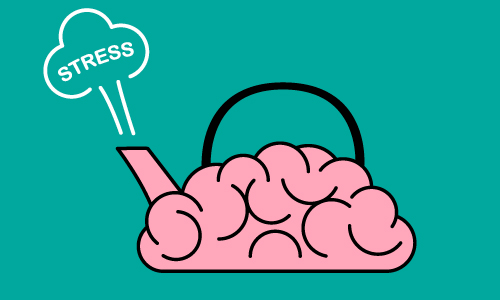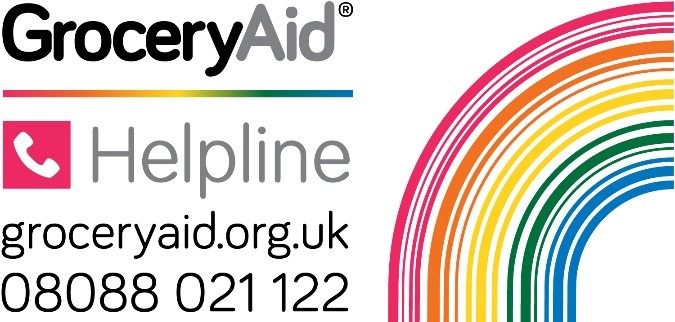International Stress Awareness Week

This article will take approximately 3 minutes to read
Published 5 Nov 2020 in Raising Awareness
As we come to the end of the year, it has been a very different experience for all of us, wherever we work within the Society. Health and wellbeing for everyone has been discussed more and more now that we are in and out of different lockdowns and tiered groups within the UK.

This week we would like to raise awareness during International Stress Awareness Week (taking place from 2nd- 6th November 2020) and provide a few helpful tips on managing stress.
What is stress?

We all know what it's like to feel stressed, but it's not easy to pin down exactly what stress means. When we say things like "this is stressful" or "I'm stressed", we might be talking about:
• Situations or events that put pressure on us – for example, times where we have lots to do and think about or don't have much control over what happens.
• Our reaction to being placed under pressure – the feelings we get when we have demands placed on us that we find it difficult to cope with.
“It's overwhelming. Sometimes you can't see beyond the thick fog of stress.”
There's no medical definition of stress, and health care professionals often disagree over whether stress is the cause of problems or the result of them. This can make it difficult for you to work out what causes your feelings of stress, or how to deal with them. But whatever your personal definition of stress is, it's likely that you can learn to manage your stress better by:
• managing external pressures, so stressful situations don't seem to happen to you quite so often
• developing your emotional resilience, so you're better at coping with tough situations when they do happen and don't feel quite so stressed
What are the signs of stress?
We all experience stress differently in different situations. Sometimes you might be able to tell right away when you're feeling under stress, but other times you might keep going without recognising the signs. Stress can affect you both emotionally and physically, and it can affect the way you behave.
“My head is tight, and all my thoughts are whizzing round in different directions and I can't catch them.”
How you might feel
• irritable, aggressive, impatient or wound up
• over-burdened
• anxious, nervous or afraid
• like your thoughts are racing and you can't switch off
• unable to enjoy yourself
• depressed
• uninterested in life
• like you've lost your sense of humour
• a sense of dread
• worried about your health
• neglected or lonely.
How can I deal with pressure?

There are various steps you can take to cope with being under pressure. Here are some tips that people have told us they find useful, but it’s important to remember that different things work for different people. Only try what you feel comfortable with.
For example:
• identify your triggers (issues that come up regularly, ongoing or one-off events)
• organise your time (make a list, organise activities, take breaks, ask someone for help)
• address some of the causes (housing and finances, work, family or personal life)
• accept the things you can't change
How can I be more resilient?

Taking steps to look after your wellbeing can help you deal with pressure, and reduce the impact that stress has on your life. This is sometimes called developing emotional resilience. Resilience is not just your ability to bounce back, but also your capacity to adapt in the face of challenging circumstances, whilst maintaining a stable mental wellbeing. Resilience isn't a personality trait – it's something that we can all take steps to achieve.
For example, you can:
• make some lifestyle changes (be assertive, develop interests/hobbies, make time for friends, find balance in life)
• look after your physical health (get enough sleep, be active, eat healthily)
• give yourself a break (reward yourself, have a change of scenery, take a break/holiday, resolve conflicts, forgive yourself)
• build your support network (friends, family, work)
What treatments are there?

Stress isn't a medical diagnosis, so there's no specific treatment for it. However, if you're finding it very hard to cope with things going on in your life and are experiencing lots of signs of stress, there are treatments available that could help. These include:
• talking treatments(Cognitive behavioural therapy (CBT), Mindfulness)
• medication
• ecotherapy (use nature and get out more)
• complementary and alternative therapies (yoga, meditation, aromatherapy, massage)
To access most treatments, the first step is usually to talk to your GP.
We would like to thank our partner charity MIND for providing these tips, if you would like to find out further information click here.
Need further support?
MIND is here for you:
If you need non-urgent information about mental health support and services that may be available to you, please call the MIND Infoline on 0300 123 3393 or email info@mind.org.uk.
If you feel more comfortable texting, you can now do so. Send your texts through to 86463. Find more information on the helplines page here.
You can also find your nearest local Mind or shop here.

For any further support please use the following information:
Your helpline and contact website:
08088 021 122 - www.groceryaid.org.uk







